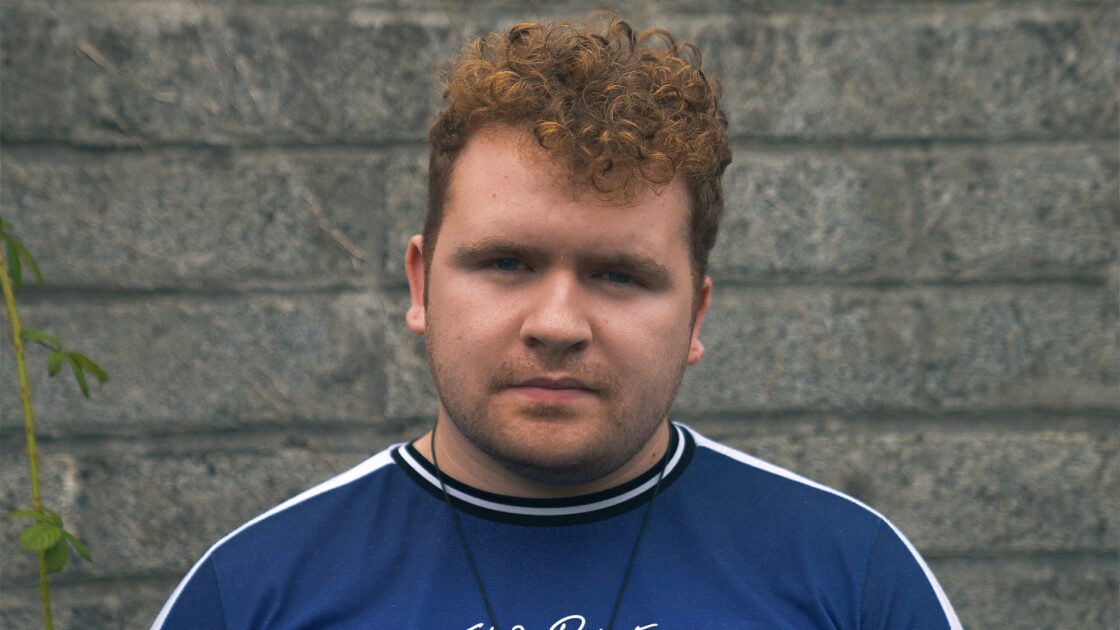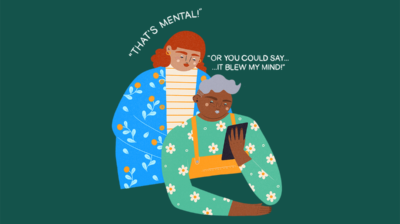How language affected my mental health
Joseph Burke talks about how the language we use can create stigma and shame attached to mental health.

Words can build you up or break you down. Everyday language and the way we speak is what can create stigma especially when it comes to mental health.
When we talk about looking after our mental health it is typical to mix it up with mental illness. Mental health is something everyone has just like physical health. It impacts your overall well-being by influencing your mind, feelings, and emotions. It is always there and will lead to you having good and bad days.
However mental illness may last for long periods of time and would usually consist of a diagnosable illness from mental health professionals. Common mental illnesses include mood, anxiety, or eating disorders all of which can be treated with medication and therapy (Government of British Columbia, 2019).
We all have mental health
So, the next time you hear advice for looking after your mental health, remember, it isn’t just aimed at people with mental illness. We all have mental health. Good sleep, exercise, talking to people, and self-care can often help support our general wellness.
Why language matters
As someone with lived experience of mental illness, a saying that bothers me is people’s use of the term “suffering” with mental illness rather than “living”. In fairness this one is a point of view, I was diagnosed with anxiety disorder and bipolar affective disorder nearly ten years ago.
While I was “suffering” with my illness for quite a while, over time I learned to live with it. In everyday conversations, I prefer to say I’m living with bipolar. This puts me in the mind frame that I’m in control of it and it no longer dominates my life anymore as sadly it defined my teenage years.
Perhaps one of the most damaging terms around mental health language is “committed suicide”. This was widely used years ago when suicide was a crime in the eyes of the law or a sin in the eyes of the church. Since it’s no longer a crime, mental health advocates in today’s world recommend using the phrase “died by suicide”, “suicide attempt” or “taking their own life”.
Mental Health stigma
We still hear many examples of mental health language being used negatively in everyday life, oftentimes people do not realise that what they are saying can be offensive. This can create stigma towards mental health.
Examples of the wrong use of mental health terms include:
- “you’re driving me crazy, they’re going to send me straight to the loony bin,”
- “you’re mad/mental,”
- “He’s anorexic,”
- “the weather is so bipolar,”
- “you’re can’t sit still, it’s like you have ADHD.”
While this might seem harmless it becomes hurtful when you or someone close is negatively impacted. As a result of stigma, some may find themselves in a situation where they are afraid of anything associated with mental illness, for example, a loved one, a doctor, medication, or the hospital.
Labels don’t define you
I have found my best support in my mental health journey is my family and friends. While they try their best, there is some language that can be hurtful even if they don’t mean harm. “Snap out of it, stop worrying”, is a phrase we often hear. It’s important to remember, just like you have symptoms for asthma or other conditions, you have mental health symptoms.
Just as I shared above, my bipolar affective disorder took over my life and dominated my teenage years. That’s when I learned labels don’t have to define you. Bipolar was just one of the many things that were unique about me, and over time I embraced this, and it took a backseat as I started living with it.
These are just some examples of how the use of language around mental health is important. I’m sure there are many more examples, but hopefully, these started your thinking on the topic.
Need more information, advice or guidance?
We offer information, advice and guidance about the issues that matter to you. Our online Youth Information Chat service is for 16 to 25 year olds and is available Monday to Friday, 4pm to 8pm (excluding Bank Holidays).






